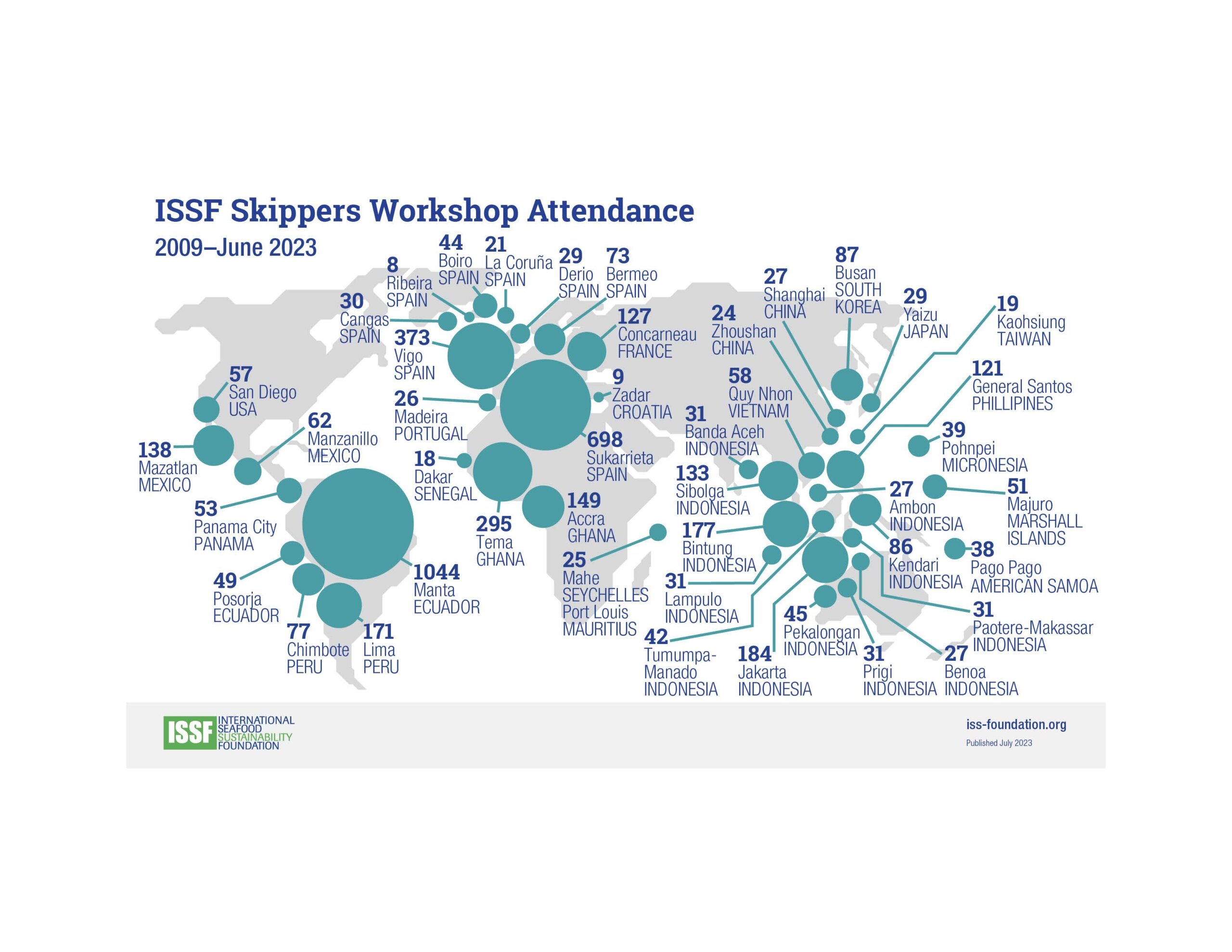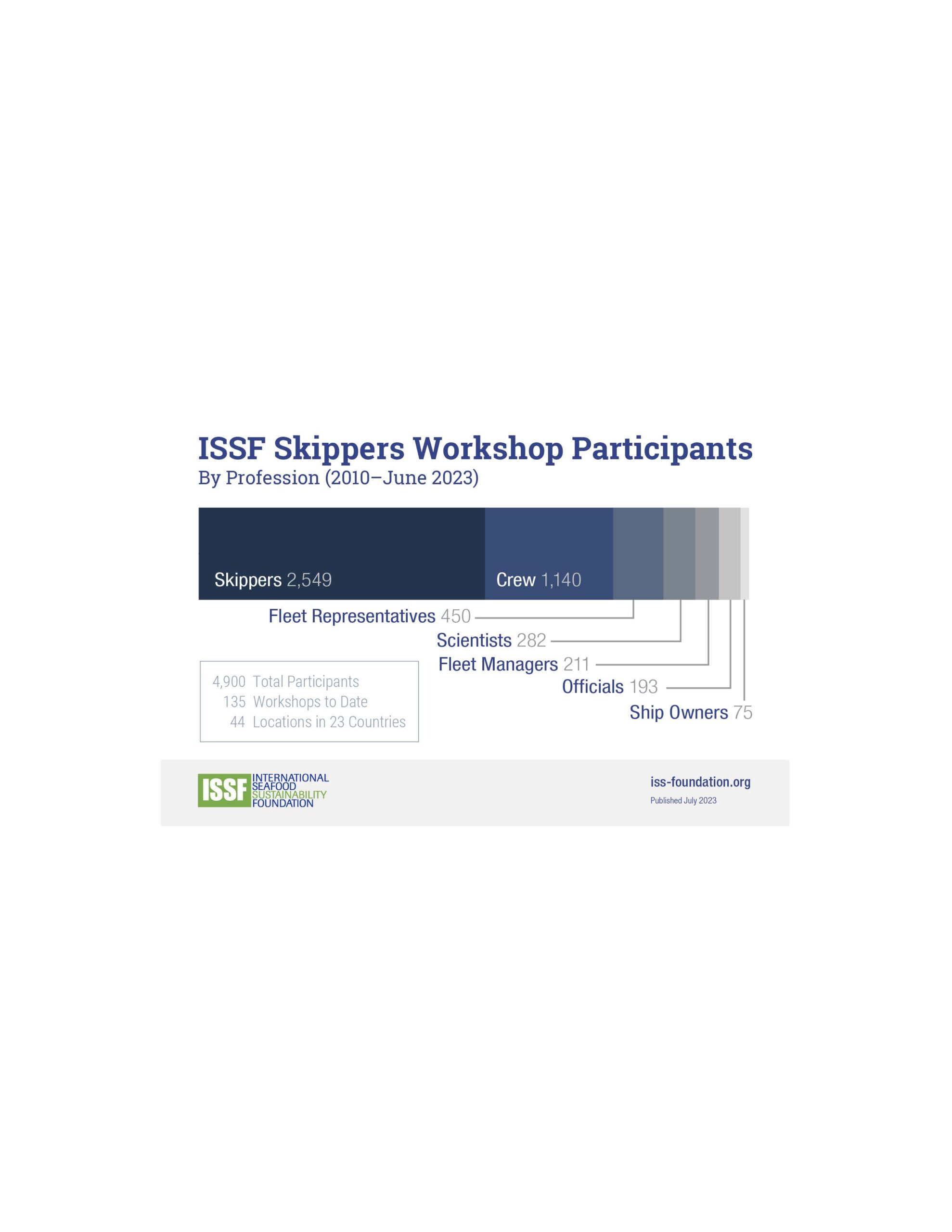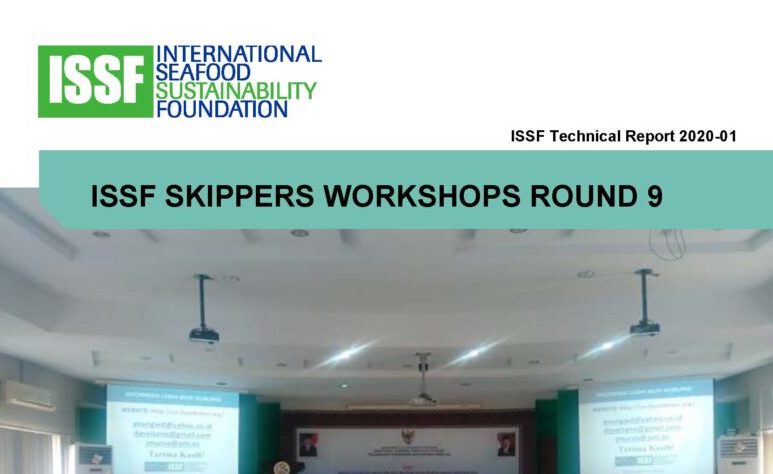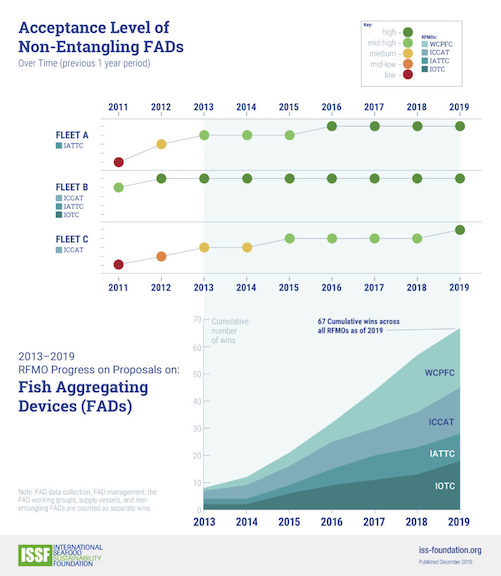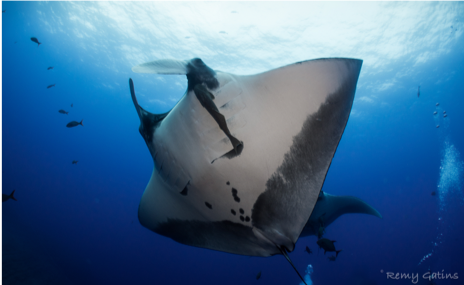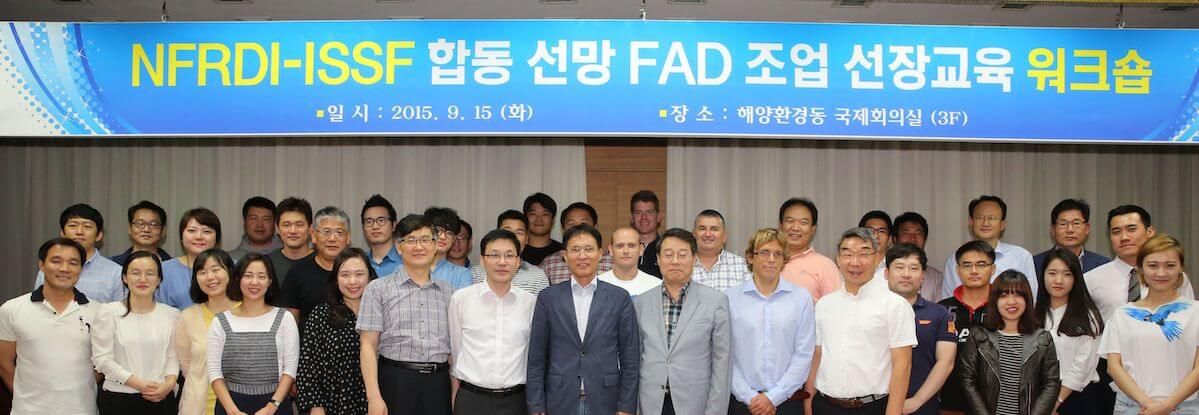
Workshop Options
We offer Skippers Workshops for purse seine vessels of all sizes, and also have hosted sessions for longline fleets on seabirds and sea turtle bycatch mitigation.
ISSF Skippers Workshops, which explore best practices for sustainable tuna fishing, are free of charge and offered at convenient tuna port locations for:
- Tuna vessels that have chosen to be listed on ISSF’s ProActive Vessel Register (PVR), although PVR registration is not required to attend workshops. For questions about registering on the PVR, contact ISSF at [email protected].
- ISSF participating companies, and the fleets they do business with
- Any other fishers or fishery stakeholders (ship owners, fishery managers, NGO representatives, and local scientists, for example)
Recent Workshops
Our most recent report on ISSF skippers workshops covers fishers’ bycatch-mitigation acceptance levels, ideas for mitigation improvements, and other topics.
CUSTOMIZED TOPICS & FORMATS
Scientist Facilitators
ISSF scientist-consultant Dr. Jefferson Murua has conducted many of the workshops.
Other collaborating expert scientists for each ocean region are Dr. Gala Moreno (Atlantic and Eastern Pacific), Dr. Laurent Dagorn (Indian), Dr. Martin Hall (Eastern Pacific), and David Itano (Western and Central Pacific).
Tailored Workshops
Some nations’ fleets tend to have smaller vessels — without certain technology or equipment on board — and bycatch-mitigation techniques need to be adapted for their fisheries.
Workshops can be customized based on a fleet’s vessel size, vessel location, fishing concerns, or bycatch species interactions. As one example, read about our sea turtle work with Costa Rican longline fishers.
Special Topics
ISSF also invites fishers to workshops to address specific, urgent issues in the three oceans.
Our biodegradable FAD workshops, which have been held in Spain and Ghana, are another example: Fishers and scientists proposed bFAD designs that may be able to reduce the amount of plastic and non-natural materials used in FADs. Workshop participants also have discussed how to reduce FAD marine litter and use “bycatch release devices.”
Train-the-Trainer Programs
To reach more fishers in the world’s most active tuna-fishing regions, we have offered “train-the-trainer” programs over the past three years.
In Indonesia, for example, ISSF has partnered with local fisheries scientists from the Center for Fisheries Research and Development (CFRD) to host workshops for area fishers scattered across the numerous ports of the archipelago — in person, and in native languages.
SKIPPERS WORKSHOP RESOURCES
Video Workshops
During the COVID pandemic, we have not hosted in-person Skippers Workshops. But tuna fishers who would like to learn more about bycatch mitigation can view our video versions of the workshops and download other sustainable-fishing resources.
Biodegradable FADs Guide
Four tuna RFMOs already require the fleets in their regions that fish with FADs to use only non-entangling FAD designs. Some RFMOs additionally encourage fleets to use biodegradable materials in FADs.
ISSF’s Guide to Non-Entangling & Biodegradable FADs is a resource for RFMOs and fishers transitioning to more sustainable FAD designs.
